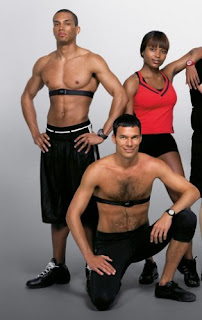

MMA is a full contact combat sport that allows a wide variety of fighting techniques, from a mixture of martial arts traditions and non-traditions, to be used in competitions. The rules allow the us of striking and grappling techniques, both while standing and on the ground (Wikipedia). I am hopelessly addicted to watching the UFC and WEC. I started watching it a few years ago and was amazed at the fighters styles and techniques. Then I discovered what they do to get in shape for a fight. Just by looking at any MMA fighter you can tell that they are in good shape, ripped muscles, little body fat, and incredible abilities. But what is behind it all, what do they actually do when they workout?
Watching an episode of The Ultimate Fighter will give you just a glimpse. But watch this video of Brock Lesnar a former Wrestling champion now MMA champion's workout.
Some common exercises include:
- Single-leg step push-off
- Single-leg dumbbell or kettle bell dead lift
- Pull ups
- Medicine ball throws and tosses
- Boxing
- Grappling
- Wrestling
- Running uphill
- Specialized push ups
- Heavy bag tosses
- Wind resistant bike
- Sledge hammer exercise
- Bear crawls
- Tire pushes
- Wood chop
- Snorkel training
- And countless others











